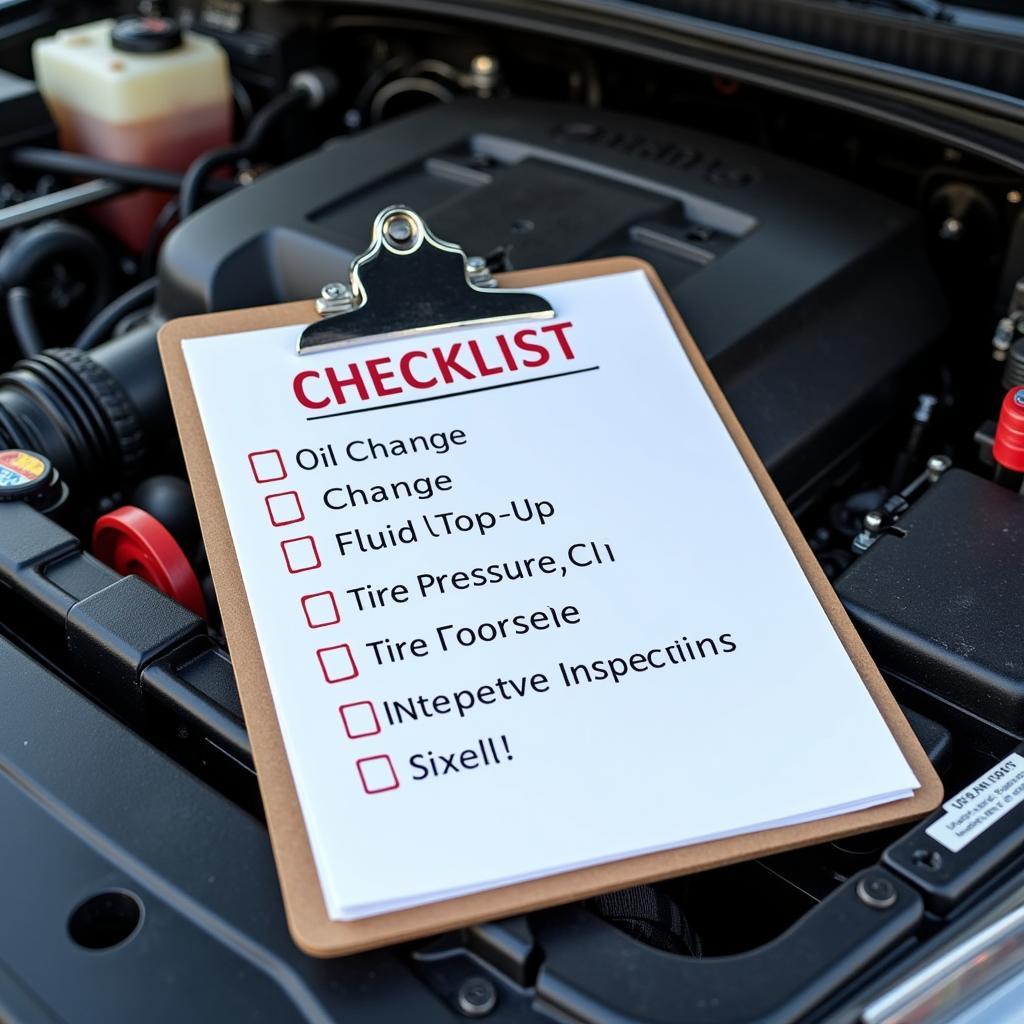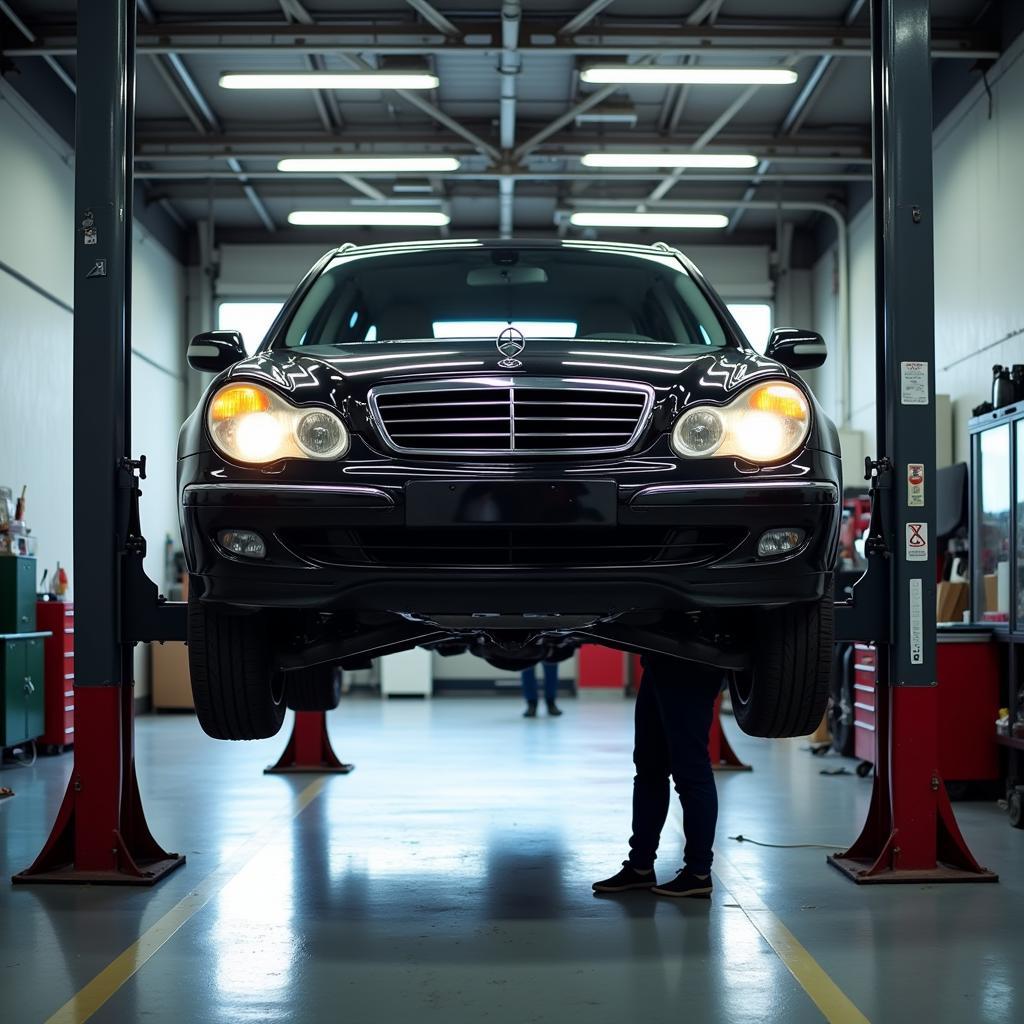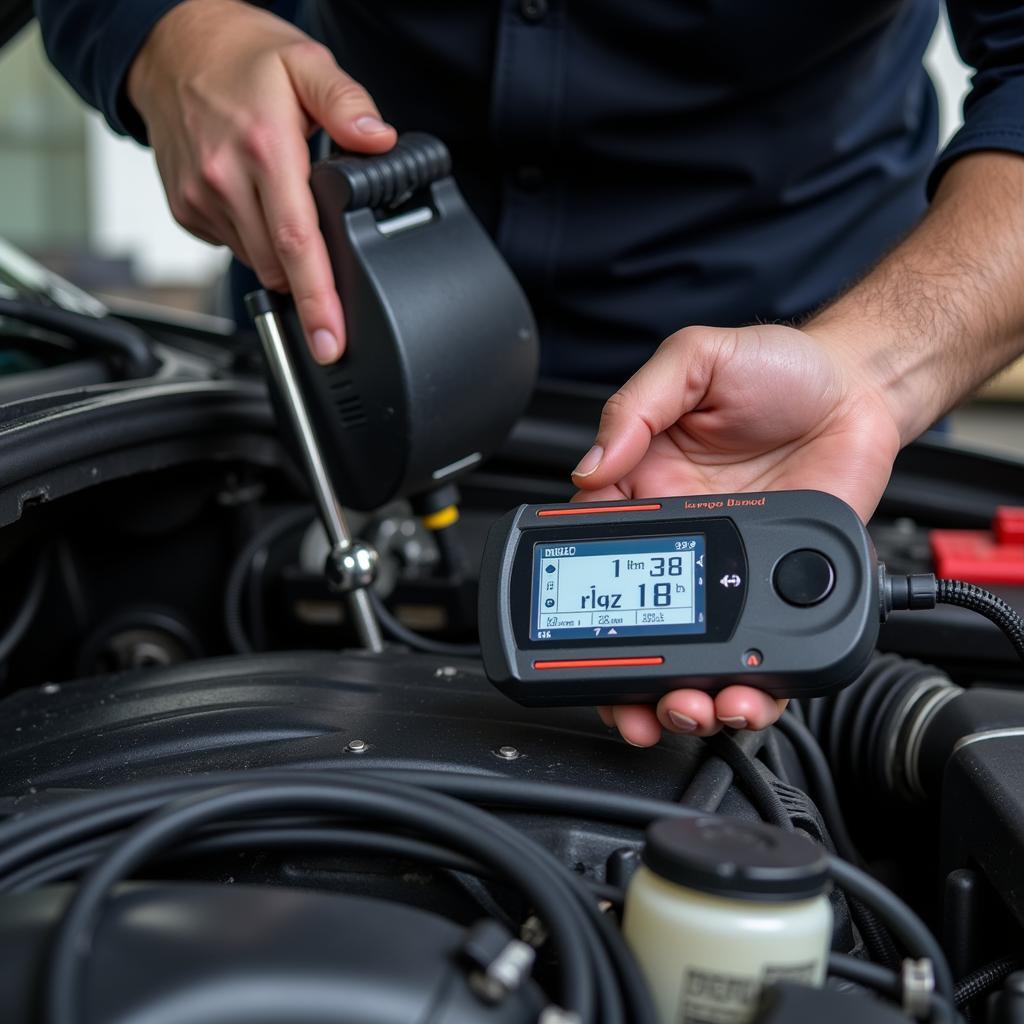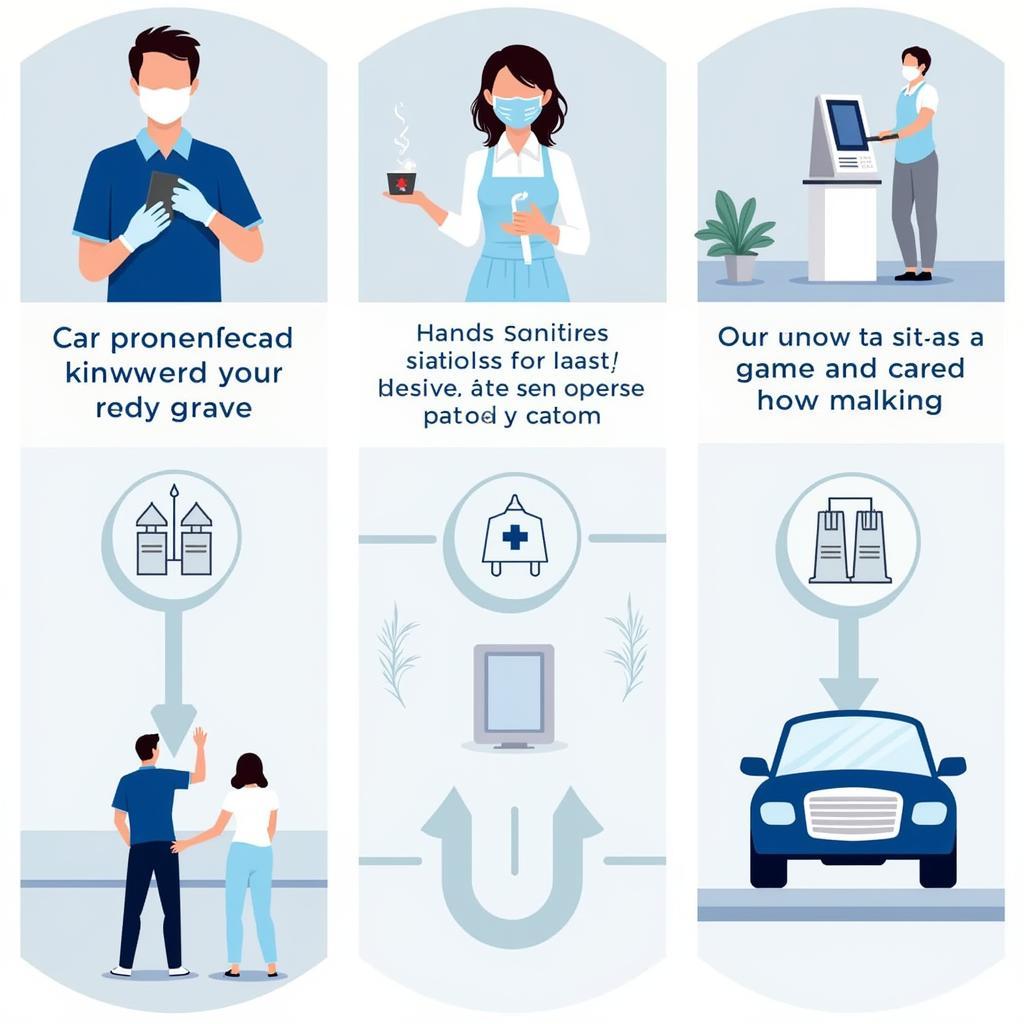What is Included in a Regular Car Service?
Maintaining your car through regular servicing is crucial for its longevity, performance, and your safety on the road. But what exactly does a regular car service entail? This comprehensive guide will delve into the details of a standard car service, equipping you with the knowledge to make informed decisions about your vehicle’s maintenance.
Understanding Car Service Essentials
A regular car service is much more than just an oil change, though that is a critical component. It’s a comprehensive check-up that addresses various aspects of your car’s health, ensuring optimal performance and identifying potential issues before they escalate. The specific services included can vary slightly depending on your car’s make, model, age, and mileage. However, several key components are typically part of a standard car service.
 Regular Car Service Checklist
Regular Car Service Checklist
Essential Checks and Replacements
Here’s a closer look at what a regular car service commonly includes:
1. Oil and Filter Change: This is the cornerstone of any car service. Engine oil lubricates moving parts, prevents overheating, and removes contaminants. Over time, the oil degrades and loses its effectiveness. Replacing it along with the oil filter ensures your engine runs smoothly.
2. Fluid Level Checks and Top-ups: Your car relies on various fluids to function correctly, including coolant, brake fluid, power steering fluid, transmission fluid, and windshield washer fluid. A car service includes checking these fluid levels and topping them up as needed.
3. Tire Pressure Check and Adjustment: Maintaining the correct tire pressure is vital for fuel efficiency, tire longevity, and safe handling. During a service, your tire pressure will be checked and adjusted to the manufacturer’s specifications.
4. Brake Inspection: Your brakes are your car’s most crucial safety feature. A service includes inspecting your brake pads, discs, and calipers for wear and tear, ensuring they function optimally.
5. Battery Assessment: Your car’s battery provides the power to start the engine and run various electrical components. During a service, the battery’s health is assessed, checking its voltage and charging capacity.
6. Air Filter Replacement: The air filter prevents dust, debris, and other contaminants from entering your engine. A clogged air filter can reduce engine performance and fuel efficiency. Replacing it during a service ensures your engine breathes easy.
 Car Being Serviced in a Garage
Car Being Serviced in a Garage
Going the Extra Mile: Additional Checks
In addition to the essentials, a regular car service often includes:
- Lights Inspection: All exterior lights, including headlights, taillights, brake lights, and turn signals, are checked for functionality.
- Wiper Blades Check: Worn-out wiper blades can hinder visibility, especially during inclement weather. They are inspected and replaced if necessary.
- Belt and Hose Inspection: Your engine uses belts and hoses for various functions, such as powering the alternator and circulating coolant. These are inspected for wear, cracks, and proper tension.
- Steering and Suspension Check: The mechanic will check your car’s steering and suspension components for wear and tear, ensuring smooth handling and a comfortable ride.
 Mechanic Checking a Car Engine
Mechanic Checking a Car Engine
Benefits of Regular Car Servicing
Sticking to a regular car service schedule offers numerous benefits:
- Enhanced Safety: Ensuring your car’s essential components function correctly contributes significantly to your safety and that of other road users.
- Improved Performance: A well-maintained car performs better, offering smoother handling, better fuel efficiency, and optimal engine performance.
- Increased Lifespan: Regular servicing can significantly extend the life of your car by addressing minor issues before they become major problems.
- Higher Resale Value: A car with a complete service history is more attractive to potential buyers, potentially fetching a higher resale value.
How Often Should You Service Your Car?
The frequency of car servicing depends on various factors, including your car’s make and model, age, mileage, and driving conditions. Refer to your owner’s manual for specific service interval recommendations. As a general guideline, most manufacturers recommend servicing every 12,000 miles or 12 months, whichever comes first.
Don’t Delay – Schedule Your Car Service Today
Understanding “What Is Included In A Regular Car Service” empowers you to make informed decisions about your car’s maintenance. Regular servicing is an investment in your car’s health, your safety, and your peace of mind. Don’t wait until something goes wrong – be proactive and schedule your car’s next service appointment today!
FAQs about Regular Car Service
-
Do I have to go to a dealership for a regular car service?
No, you can take your car to a trusted independent mechanic or specialized car service center. -
Can I service my car myself?
While some routine maintenance tasks can be done at home, a regular car service involves more complex procedures best left to qualified mechanics. -
What happens if I miss a scheduled service?
While missing one service may not be catastrophic, consistently neglecting regular servicing can lead to more significant and costly repairs down the line. -
How long does a regular car service take?
A standard car service typically takes a few hours. However, the duration can vary depending on the car’s condition and any additional repairs needed. -
What is the difference between a minor and major car service?
A minor service typically includes essential checks and fluid top-ups, while a major service is more comprehensive, involving more in-depth inspections and replacements.
Need Assistance with Car Services?
Get in touch with us! We are here to help you with all your car service needs. Contact us via WhatsApp: +1(641)206-8880, Email: [email protected]. Our dedicated customer support team is available 24/7.

